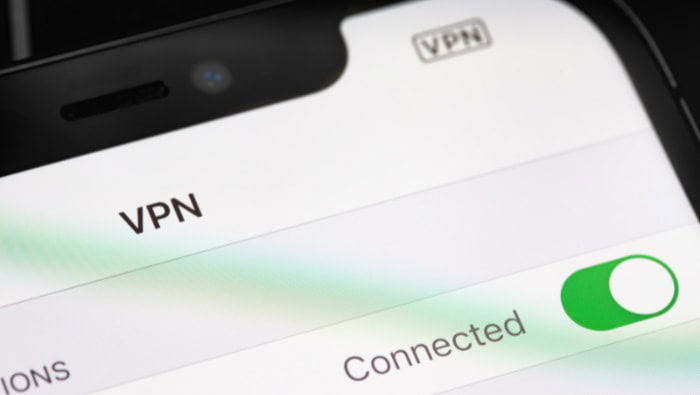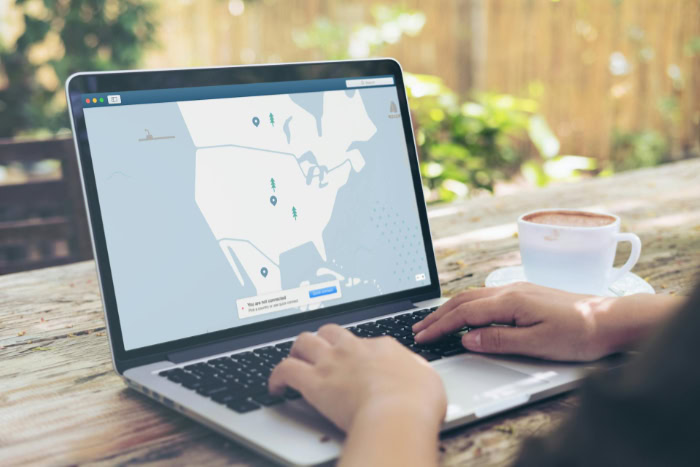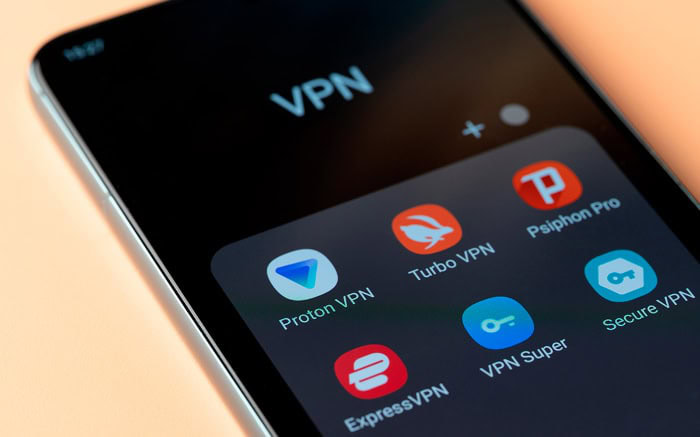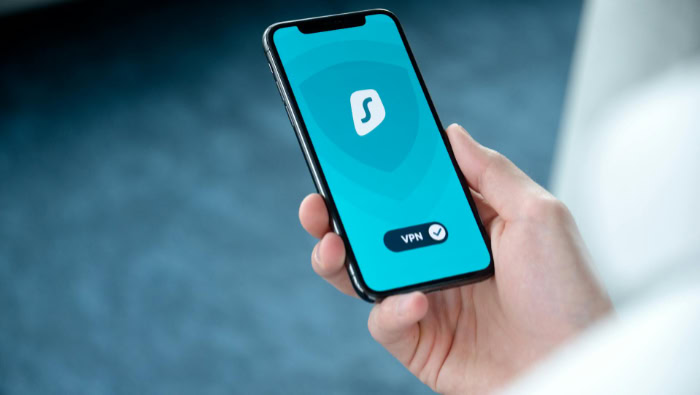What Is a VPN? How It Shields Your Data and Identity

Scrolling through your favorite sites, shopping online, or streaming videos often feels effortless. However, behind the scenes, your internet activity is constantly exposed to prying eyes, data trackers, and invisible barriers blocking content based on your location.
Privacy concerns, cyber threats, and restricted access have never felt more personal or pressing. VPNs have surged in popularity as people seek safer, more open online experiences.
Acting like secure tunnels, these tools can help cloak your activities, shield your data from hackers, and unlock a freer internet.
Understanding VPNs
Effective online privacy often begins with knowing how your connection to the internet can be protected and made more secure. VPNs, or Virtual Private Networks, have gained widespread attention as powerful tools for individuals and organizations looking to shield their activities and information from unwanted observation.
To appreciate their impact, it helps to understand what a VPN is and how it actually works beneath the surface.
What Is a VPN?
A Virtual Private Network is a service that creates a secure, encrypted link between your device and the wider internet. By forming this private connection, a VPN prevents outsiders from easily seeing what you are doing online.
The most noticeable effect is the way a VPN masks your actual IP address-the unique number that identifies your device and location on the internet. Instead, anyone watching only sees the IP address of the VPN server you are connected to, which could be located in another city or even a different country.
This basic function forms the foundation for improved privacy, anonymity, and the ability to appear virtually anywhere in the world.
How Does It Work?
To ensure your online actions remain private and secure, a VPN relies on advanced encryption protocols. When you connect through a VPN, your data gets scrambled using strong methods like AES-256 encryption, making it unreadable to anyone who intercepts it.
This process transforms your internet traffic into a coded stream that only you and the VPN server can interpret.
The concept of tunneling plays a critical role in this process. Tunneling means your data travels through a secure pathway from your device to the VPN server before heading out to the internet.
Along this route, potential threats like hackers or snooping internet service providers find themselves locked out, as they cannot access the contents of your connection.
Remote servers operated by the VPN provider introduce another layer of protection and flexibility. After encrypting your data, your VPN routes it through one of these servers, which can be located practically anywhere worldwide.
As a result, websites and online services believe your connection originates from the server’s location, not your actual one. This rerouting not only helps protect your anonymity but also makes it possible to access content available in different regions.
Key Benefits

Choosing to protect your internet connection with a VPN brings a range of practical benefits that appeal to privacy-conscious users, frequent travelers, and anyone wanting better online security. VPNs offer more than just invisible browsing-they transform how you interact with the web, making your experience safer, more private, and less restricted by borders or surveillance.
Three of the most compelling advantages include enhanced privacy, improved security, and greater access to restricted content.
Enhanced Privacy
Privacy becomes much easier to maintain with a VPN. By encrypting your traffic and masking your IP address, a VPN keeps your online activities hidden from internet service providers and advertisers who often collect your data for marketing or surveillance purposes.
Without a VPN, your browsing history and personal information can be tracked and even sold, sometimes without your knowledge. Once a VPN is active, tracking your movements across the internet becomes far more difficult, allowing you to browse with confidence that your habits and personal interests remain private.
Improved Security
Online security often feels fragile, especially when using public Wi-Fi at coffee shops, airports, or hotels. VPNs play a crucial role in safeguarding your sensitive data from cybercriminals who frequently lurk on unsecured networks.
By encrypting your connection, a VPN prevents hackers from accessing your passwords, banking information, and personal files. The extra protection also makes it harder for unauthorized surveillance to monitor your activities, creating a safer environment for both routine browsing and more sensitive online interactions.
Access to Restricted Content
Internet freedom often depends on your location, with certain websites, streaming platforms, or social media services blocked or limited based on geographic restrictions. VPNs empower you to bypass these digital roadblocks by connecting to servers in different countries, making it appear as if you are browsing from a new location.
This approach opens up access to broader content libraries, international news, and social media that may be censored or unavailable where you live. VPNs serve as a vital tool for travelers, expats, or anyone seeking to break through limitations imposed by governments or private companies.
Each one of these benefits works together to give you more control over your online experience, offering privacy, safety, and freedom that many people now consider essential.
Challenges and Limitations

VPNs offer noticeable advantages for privacy and security, but they are not without flaws. Like any technology, VPNs have their share of challenges and limitations that users should weigh before relying on them as a complete solution.
Some issues stem from the quality of the service itself, while others relate to the practicalities and compromises that come with using encrypted connections.
Security Risks
While a reliable VPN can strengthen your online security, not all providers deliver the same level of protection. Lower-quality VPNs may introduce vulnerabilities instead of preventing them.
For example, some services fail to properly secure your connection, resulting in data leaks where your real location or browsing history can slip through unnoticed. Security lapses like this can undermine everything a VPN is supposed to accomplish.
In addition, certain VPNs may come bundled with malware or use questionable practices that put your devices at risk. Free VPN providers, in particular, sometimes rely on invasive ads or even collect and sell user data to make a profit.
A provider’s “no-logs” policy might sound reassuring, but it depends entirely on the trustworthiness and transparency of the company behind it. Without independent verification, users must take the provider’s word that no records of browsing activity are kept, which could be a serious risk if the provider is ever pressured to share data.
Operational Drawbacks
VPN encryption, while essential for privacy, can impact your browsing speed. The additional processing required for encrypting and routing your traffic, combined with the physical distance to the VPN server, can result in slower connections or longer loading times.
For users who need consistently fast speeds for gaming, video calls, or large downloads, this trade-off can become frustrating.
Organizations that deploy VPNs for their workforce face another set of complications. Managing access permissions, troubleshooting connection issues, and ensuring employees use the service correctly requires significant technical oversight.
Large companies often need specialized IT staff to handle VPN-related tasks, monitor for misuse, and maintain network integrity.
Despite these drawbacks, VPNs remain valuable for many users. Recognizing their limitations helps ensure expectations are realistic and encourages more secure, thoughtful use.
Practical Applications and Considerations

VPNs serve a wide spectrum of users, from individuals wanting more freedom online to businesses safeguarding their sensitive data. How a VPN is put to use-and the factors you should weigh before choosing one-depend largely on your personal needs, professional requirements, and ethical boundaries.
Taking a closer look at personal versus business applications, and what goes into selecting a trustworthy provider, can help maximize the benefits while keeping risks in check.
Personal vs. Business Use
Individuals frequently turn to VPNs for a more private internet experience. Streaming fans often rely on VPNs to access content unavailable in their country, opening up new libraries of shows or sports events.
Travelers find VPNs indispensable for bypassing restrictions in foreign countries and securing their connections on public Wi-Fi in airports or hotels. Many simply appreciate the peace of mind that comes from browsing privately and keeping their online searches and communication shielded from third parties.
Businesses, on the other hand, usually depend on VPNs for very different reasons. Companies employ VPNs to secure connections for remote workers, granting access to internal networks without exposing sensitive company data to outside threats.
Employees can log into accounts, access confidential files, and collaborate across continents while IT departments retain control and oversight over online activities within the organization. For many businesses, a robust VPN is a fundamental part of maintaining data privacy and meeting security compliance requirements.
Choosing a Reliable VPN
Picking the right VPN provider involves more than just downloading an app and clicking “connect.” Strong encryption standards, such as AES-256, are essential for keeping your data safe from prying eyes.
A wide selection of server locations allows for versatile access to global content and can improve speed and reliability. No-logs policies, which promise not to store your browsing activity or personal details, are vital for maintaining your privacy.
However, not all providers live up to such claims, so transparency and independent audits can be reassuring signs of honesty.
Speed is another crucial factor, especially if you stream, game, or work with large files online. A fast, stable VPN ensures that your protection does not come at the expense of frustrating delays or buffering.
Reading reviews, checking for robust customer support, and seeking out trials or money-back guarantees can help you evaluate which service suits you best.
Ethical considerations are also important when it comes to VPN usage. The privacy and access provided by VPNs should be used responsibly.
Engaging in illegal activities or bypassing regulations meant to protect others is not only unethical but can lead to serious legal consequences. Responsible use means leveraging a VPN for personal security, privacy, and freedom-without crossing into activities that harm others or break the law.
Conclusion
VPNs have proven themselves as versatile tools for anyone seeking greater privacy, stronger security, and wider access to online content. Their ability to encrypt data, mask personal information, and bypass restrictions makes them appealing to both individuals and organizations.
While VPNs offer impressive benefits, they also come with challenges, such as potential security risks and changes in internet speed. Making the most of what a VPN can provide means taking the time to evaluate your own needs, researching trustworthy providers, and considering how you use the internet.
Balancing protection, freedom, and responsibility helps ensure that a VPN becomes a valuable part of a safer and more open online experience.
